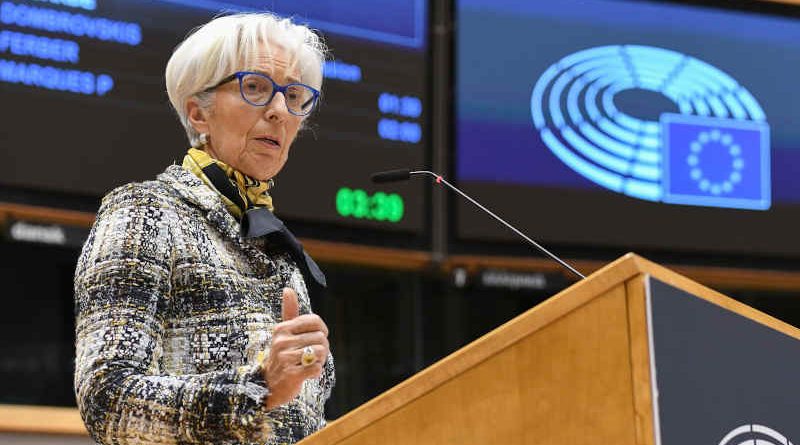European Central Bank Urged to Tackle Economic Crisis

MEPs differed as to how far the ECB should go in adopting new policies to help the EU’s economies.
MEPs urge the European Central Bank (ECB) to consider different policy measures to those currently in place to stimulate the EU economy, which faces darkening prospects. The resolution concludes the debate with ECB President Christine Lagarde, and was adopted by 533 in favour, 94 against and 63 abstentions.
MEPs express concern at the impending economic downturn, which will require action from the ECB as well as reform and fiscal measures by member states. For its part, the ECB should assess if other policy measures could be used to stimulate the economy, within the confines of its mandate. Deflation in the euro area may also justify a “strong ECB intervention”, MEPs add.
They also warn of the growing systemic risk in the financial sector, caused by loose monetary financing due to the pandemic, and say that an urgent re-evaluation of this risk should be carried out. The low interest rates currently in place to facilitate lending and investment have primarily benefited the wealthy and have often served only to prop up zombie companies, MEPs add. For this reason, they call on the ECB to evaluate the regional and sectoral impact of its policies, as well as their inter-generational fairness.
MEPs say that the upcoming ECB ‘strategy review’ must properly account for the changes in the EU economy, which is now based more on services, and is increasingly digitalised.
They also call for a broader method to measure inflation as the current one does not sufficiently factor in the cost of housing, leading to underestimations of inflation in the euro area.
The resolution pressures the ECB to better account for climate change in its operations, notably by aligning its collateral framework with risks related to climate change and the development of a risk management policy which includes as a risk those activities that negatively impact climate change.
During the debate, MEPs differed as to how far the ECB should go in adopting new policies to help the EU’s economies. Although they all cautioned against withdrawing ECB support too early and prematurely reapplying the Stability and Growth Pact rules, differences remained regarding the ECB’s role and the possibility of cancelling part of member states’ debt.





